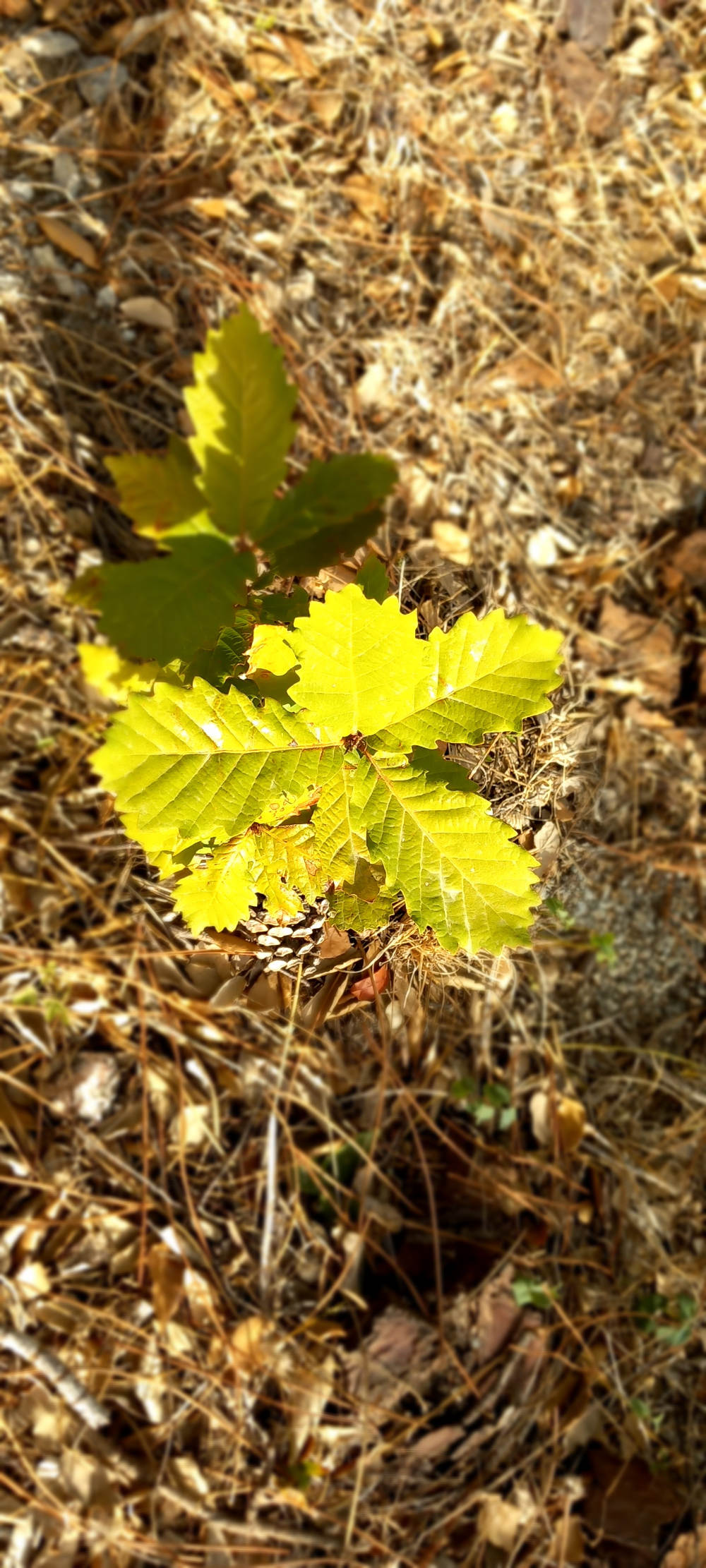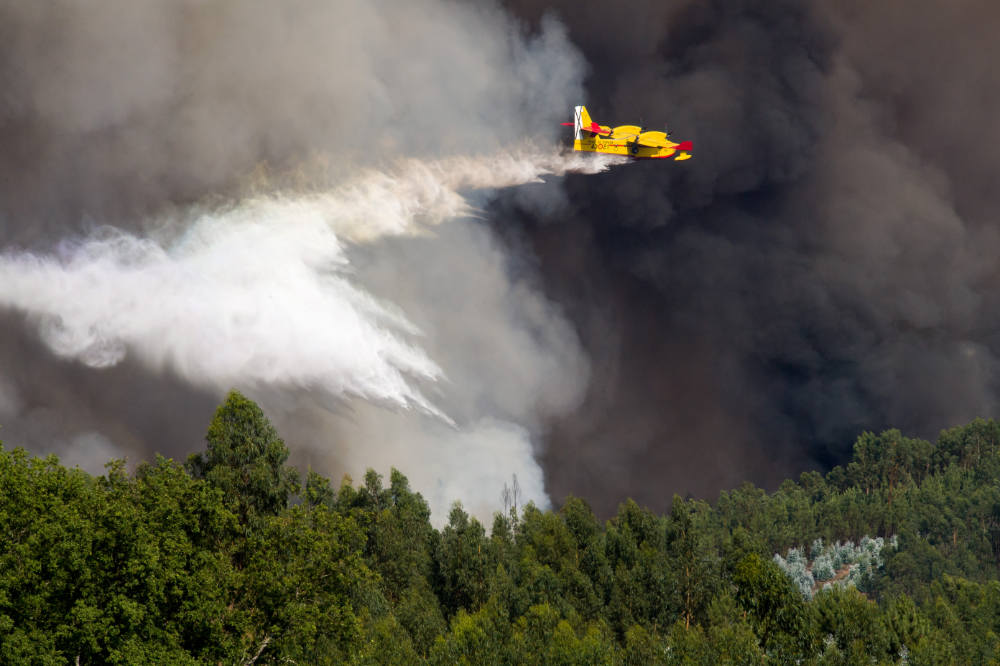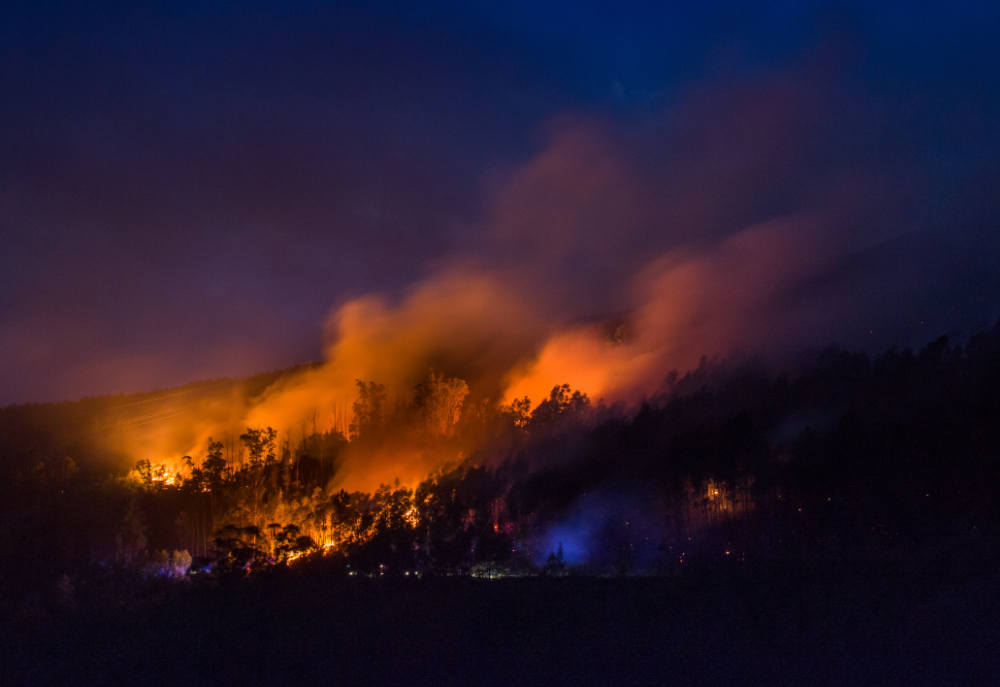Saturday 26th August 2023.
For a good while now, since the major forest fire of 2003 in Monchique, our ECO123 team has been looking at minimizing the risk of forest fires. You see, we live and work in a burnt-down forest near Monchique. In a way, we are also doing the job of a reinsurance company. As we speak, forests are burning in all southern countries of Europe on a daily basis. However, a country that has been particularly hard hit this year is a large country that normally doesn’t feature on the map as a high-risk area, namely the second-largest country on earth, Canada, from the Atlantic North-east to the Pacific West. Meanwhile, back home we are busy protecting the young trees of our new Botanic Gardens in Monchique, Portugal.
Statistically, most fires are due to sparks off high-voltage overland cables, and due to humans not really controlling fire: in its actions, humankind is guilty of gross negligence, while supposedly set on its way to sustainability.
If you’ve ever had the chance to look at the issue of Downfall, and the ancient city of Pompeii in particular, which our children are supposed to look at in history class of course, will discover parallels between the then and the today. An eminently readable book on this topic, only available in German so far, is entitled „Vom Zauber des Untergangs“ (On the Enchantment of Downfall). This was written by the head archeologist at Pompeii, the German Gabriel Zuchtriegel. Selected by the UN from a myriad of applications, his book is likely to soon be published in English too. This book on Pompeii offers a true object lesson on what we may be facing on Planet Earth at a larger scale.*
Please now, don’t take fright. Just carry on as before. Politics and the economy and everything that has taken shape across the centuries; family, your own house, friendships, is not supposed to collapse in a single moment. Still, it is interesting to draw a comparison between ancient Pompeii and today. Those who were buried alive by hot ash and rocks from the eruption of the Vesuvius volcano in the year of 79 AD in a single night have for a while now become objects of exact study by archeologists, who are carefully exposing the corpses. For these dead are pretty well preserved. Their facial expressions in the moment of death, too, speak for themselves. The victims of this tragedy and their ways of life have been well preserved, for over 2,000 years, in ash.
Yet let’s cast our gaze at the Here and Now. Why is our civilization unable to change, to expand our learned behaviour? Are we simply the sluggish and not very intelligent members of a modern civilisation? Take the house burnt down in a forest fire (see our previous reports on the forest fires of Aljezur and Odemira). As terrible as this may be, it harbours a good, if fairly hidden and challenging message. All you have to do is recognise it. For I won’t rebuild the burnt-down house in a flash, I would instead rebuild it, following a thorough analysis, to be resilient. This includes materials that are not flammable: no wooden piers, no roof construction made of wood, no wooden windows or wooden window shutters. In an area threatened by forest fires, all these materials are a „NO GO“!
In this respect the burnt-down house also represents an interesting experience. Nature has the upper hand. In areas threatened by forest fires, houses should be built in such a way that they don’t go up in flames like a box of matches. Let’s use piers made of reinforced concrete, a roof truss made from steel and cement, with aluminium windows and shutter. This just as an example. I myself have built a protective wall (corte-fogo) around my house and cultivate a garden within its walls. In cities, houses are built differently from houses in the countryside near a forest. Those have a generator and allow for the building of a sprinkler system…
 What can we do to ward off the heat? All insulating material should be made of cork, rather than from toxic, highly flammable foamed polystyrene. The thickness of the insulation panels should be around ten centimetres. The roof slab of the house should be insulated too. While we’re on this topic, which material do I use for building? The answer to this question has to be „non-flammable material.“ One obvious choice would be clay.
What can we do to ward off the heat? All insulating material should be made of cork, rather than from toxic, highly flammable foamed polystyrene. The thickness of the insulation panels should be around ten centimetres. The roof slab of the house should be insulated too. While we’re on this topic, which material do I use for building? The answer to this question has to be „non-flammable material.“ One obvious choice would be clay.
The only way to face climate change is by understanding it. Over the next few years it will become hotter and a lot drier. Which is why I collect any drop of rain when it does rain. For this I need roof guttering and cisterns to collect the water in. These days, brooks and springs are falling dry, which is forcing me to think of an emergency solution, right? For most people, catastrophes come as a surprise, if you think of Hawaii, or Pompeii for that matter. Get ready for hard times is what I want to say to you. Climate change is no walk in the park. After the catastrophe, people in Rome were asking themselves whether to rebuild Pompeii. The idea was shelved for being too expensive.
Maybe it would have been a fair bit cheaper to renounce the burning of coal, gas and petroleum. Those who are still cruising around in their diesel vehicles are beyond help. Many regions are likely to become uninhabitable through climate change. What age, I wonder, will my little oak tree reach, which only a few days ago pushed out of the soil of the Botanic Garden in Caldas de Monchique, to see the light of day in a thoroughly changing world? And what will our children and grandchildren do in 50 degrees Celsius?
*Gabriel Zuchtriegel:
“Vom Zauber des Untergangs. Was Pompeji über uns erzählt”
(On the Enchantment of Downfall. What Pompeii can tell us about Ourselves)
Published by: Propyläen Verlag, 240 pages, 29 euros.
 Eco123 Revista da Economia e Ecologia
Eco123 Revista da Economia e Ecologia





